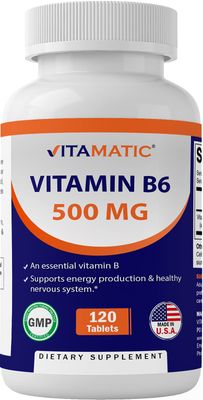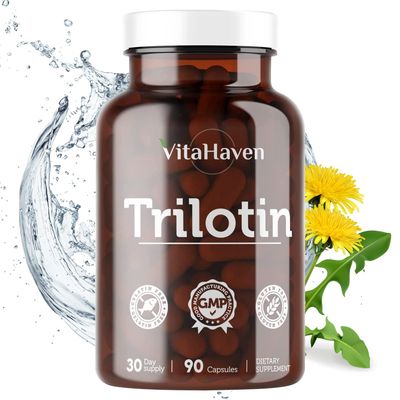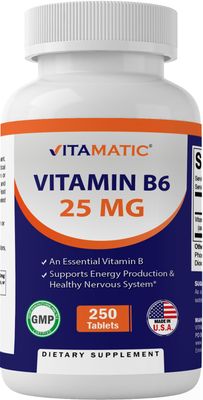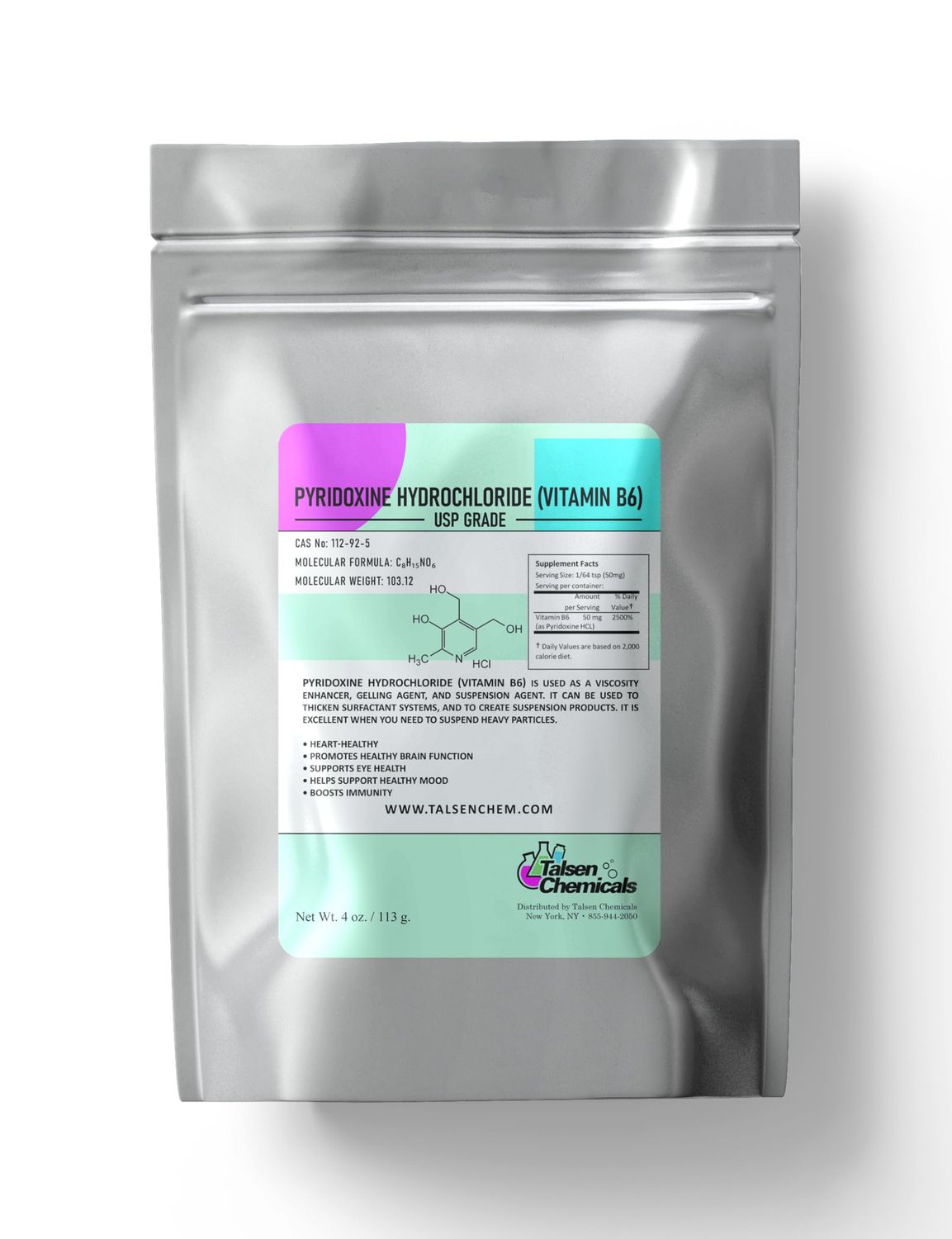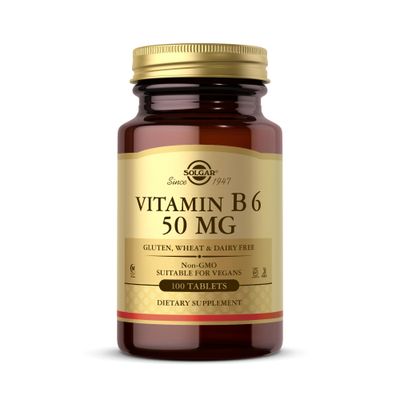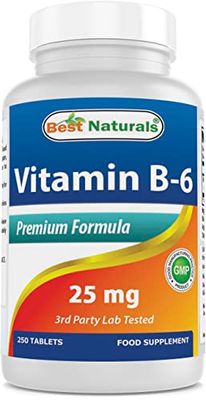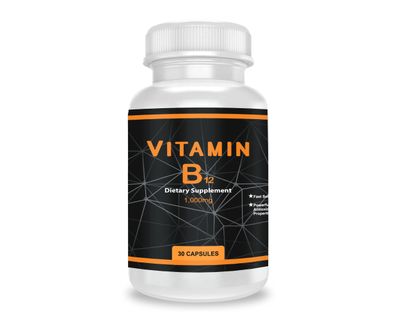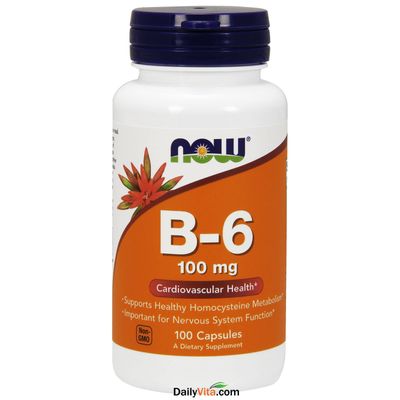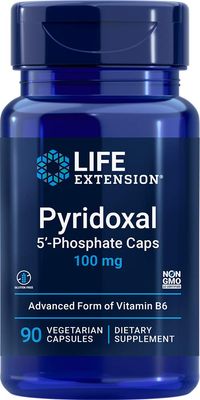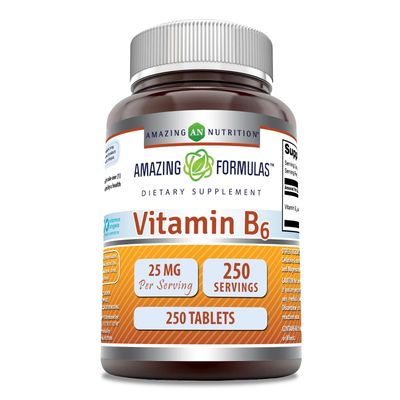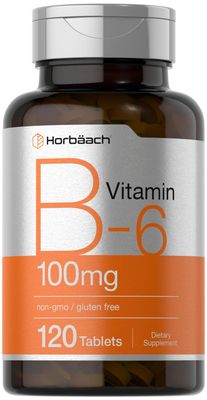Talsen Chemicals Vitamin B6 Powder (4 Oz / 113 Gram) Pyridoxine HCL Powder for Proper Function of Sugars, Fats, and Proteins in The Body Supports Metabolism and Nervous System Function
bCAS: /b112-92-5br bINCI: /b Pyridoxine Hydrochloride br Pyridoxine, also known as Vitamin B6, is a water-soluble vitamin that is essential for the proper function of the body. Vitamin B6 is needed for the proper function of sugars, fats, and proteins in the body. It's also necessary for the development of the brain, nerves, skin, and many other parts of the body. Also, Vitamin B6 is involved in a wide range of bodily processes, including the metabolism of carbohydrates, proteins, and fats; the synthesis of neurotransmitters; and the formation of red blood cells. br There are several different forms of Vitamin B6, including pyridoxine, pyridoxal, and pyridoxamine. These forms can be converted into one another and all have similar biological activity. br Pyridoxine is found in a variety of foods, including meats, whole grains, vegetables, and legumes. It can also be taken as a dietary supplement. br bBenefits and Uses: /bbr Vitamin B6 has a number of important functions in the body. It plays a role in immune function and the formation of red blood cells. It is also needed for the proper functioning of the nervous system and is involved in the production of neurotransmitters, such as serotonin and norepinephrine. br Vitamin B6 is also important for the metabolism of carbohydrates, proteins, and fats. It helps the body to use and store energy from these macronutrients. In addition to its role in the body's normal functions, Vitamin B6 has also been shown to have a number of potential health benefits. br Overall, Vitamin B6 is an essential nutrient that plays a vital role in many bodily processes. It is important for the proper functioning of the immune system, the nervous system, and the metabolism of carbohydrates, proteins, and fats. It may also have a number of potential health benefits.br bSTORAGE:/b Store in a closed container at a dry place at room temperature.
